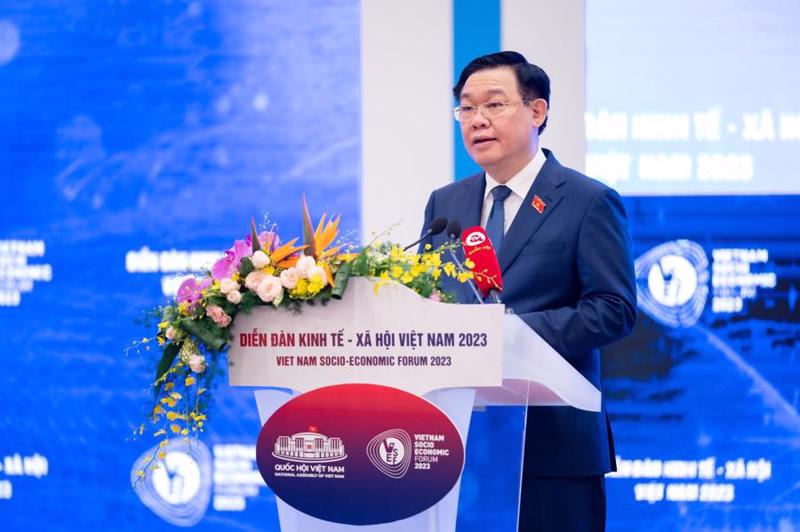The Vietnam Socio-economic Forum 2023 opened in Hanoi on September 19 with a theme of strengthening internal capacity and creating motivation for growth and sustainable development.
Co-organized by the National Assembly (NA)’s Economic Committee, the Party Central Committee’s Commission for Economic Affairs, the Ho Chi Minh National Academy of Politics, and the Vietnam Academy of Social Sciences, this year’s Forum focuses on addressing major challenges as well as opportunities in the new economic circumstances.
Addressing the opening session, NA Chairman Vuong Dinh Hue said Vietnam has basically overcome the difficulties and challenges posed by “headwinds” and seen positive, comprehensive results.
In the first eight months of the year, FDI attraction, public investment disbursement, total retail sales of goods and services, and foreign tourist numbers posted encouraging achievements.
However, many problems remain for the economy, he said. Economic growth in the first half was just 3.72 per cent, putting major pressure on growth in the second half. Fulfilling development targets for 2023 and the 2021-2025 and 2021-2030 periods will be quite difficult, he said.
In order to overcome such issues, it is necessary to build and promote internal strength and cope with uncertainties from external factors.
“We need to enhance internal strength while effectively exploiting external strengths to adapt and develop,” he told the gathering. “This is considered a top priority amid uncertainty and increasing risks.”
Based on recommendations and solutions discussed at the Forum, the Organizing Board will send a report to the NA, the government, and relevant ministries and agencies, which will serve as an important source of information for NA delegates when considering and deciding upon important issues facing the country at the upcoming 6th session of the 15th NA, he said.
The Forum has two sessions. The first focuses on discussing measures to tackle problems facing businesses in production and trade, focusing on the capacity to absorb capital, fiscal policy, and monetary policy. The second will seek solutions to improve workplace productivity and ensure social security.









 Google translate
Google translate